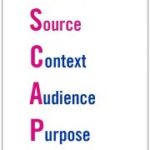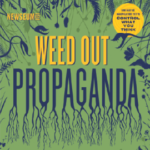The First Amendment Academy is a hub for quick, engaging quizzes from Freedom Forum, which also provides educational resources through NewseumED. The quizzes test middle school and high school students’ knowledge with real-world scenarios, interactive activities and thought-provoking questions that make learning these five fundamental freedoms fun, fast and relevant.
Free Speech Essentials
Do your students know what they’re free to say online? At school? On a public street corner? From censorship to cyberbullying, the First Amendment and the freedoms it protects are as hotly contested as ever. This EDCollection explores 16 free speech debates ranging from the founding of our nation to recent headlines to illustrate what free speech actually means, where it comes from, and how far it can go. Whether you’re a social studies teacher looking for a complete unit or an English teacher looking to spend a single class period on free expression, there’s something for everyone. Free registration required.
Fact Finder: Your Foolproof Guide to Media Literacy
Are your students savvy searchers? Can they spot the difference between a straight news article and an opinion piece? Do they recognize bias in their sources … or in themselves?
Tackle these challenges and more using Fact Finder’s 11 flexible, multimedia lesson plans. Eight skill-building lesson plans introduce essential media literacy concepts through engaging explainer videos and colorful infographics that help students revisit, retain and apply the key concepts. The accompanying News or Noise? Media Map provides a collection of examples ready for students to analyze and evaluate with the support of worksheets and discussion prompts. Three reporting lesson plans help students take what they’ve learned and apply it to their own content creation, inspired by the issues that matter to them.
Media Literacy Booster Pack
Evaluating Election Ads
Fake News – What’s the Big Deal?
The Fundamentals of News
Source: Can I Trust the Creator?
Weed Out Propaganda
Evidence: Do the Facts Hold Up?
This Common Core aligned lesson plan for middle and high school asks students to dig into an article to determine whether they can trust the information by verifying the evidence it presents.





